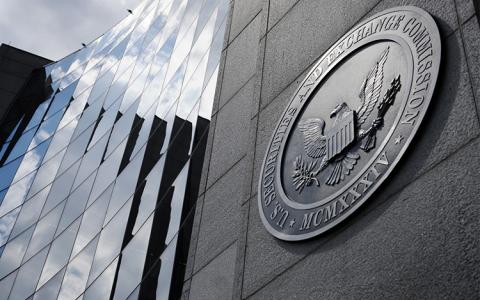
The U.S. Senate cleared Gary Gensler to lead the Securities and Exchange Commission, allowing President Joe Biden’s choice for Wall Street’s top sheriff to take over the regulator as it faces myriad market threats.
Gensler, whose nomination was approved Wednesday in a 53-to-45 vote, is poised to confront everything from the fallout of the GameStop Corp. trading frenzy to the deluge of special purpose acquisition companies and the collapse of Archegos Capital Management. As chairman, he’ll also face intense pressure from progressive Democrats, who want him to promptly toughen oversight that was weakened during the Trump administration.
The role of market watchdog is a familiar one for Gensler, 63. He ran the Commodity Futures Trading Commission during the Obama administration, imposing new rules on derivatives that were blamed for exacerbating the 2008 financial crisis. He’s also well-versed in the ways of industry, having been one of the youngest people to become a Goldman Sachs Group Inc. partner early in his career.
At the SEC, he’ll lead a sprawling bureaucracy where most employees have been working from home for more than a year because of the pandemic. In a joint statement following his confirmation, the agency’s four current commissioners welcomed him aboard. The SEC will be back to full strength with five members when Gensler is sworn in, putting Democrats in the majority.
It’s widely expected that he will clash with corners of the financial industry as he pivots from the policies put in place by Jay Clayton, who led the regulator for most of the Trump administration. Still, powerful trade groups -- including the Securities Industry and Financial Markets Association, Investment Company Institute, American Securities Association, Managed Funds Association and Investment Adviser Association -- wished him well and pledged to work together.
Issues that lawmakers expect Gensler to tackle were on display during his March 2 confirmation hearing. Senators asked his views on Bitcoin, popular trading apps like the one operated by Robinhood Markets, whether public companies are adequately disclosing the business risks of climate change, and the inner workings of the stock market.
‘Down Payment’
Sherrod Brown, an Ohio Democrat who leads the Senate Banking Committee, said he expects Gensler to focus the agency on protecting retail investors.
“Mr. Gensler will bring the SEC’s focus back to the people who make this country work and push to ensure that markets are a way for families to save and invest for their kids’ education, a down payment on a home, and for a secure retirement -- not a game for hedge fund managers where workers always lose,” Brown said in a statement following Wednesday’s vote.
Gensler garnered the support of a few Republican senators, including Susan Collins of Maine, but he was largely confirmed along party lines. The division means he’s certain to face stiff pushback from GOP lawmakers as he moves to implement parts of his agenda at the agency.
From Goldman to SEC: Gensler’s Next Stop Worries Wall Street
Early flashpoints could emerge if Gensler makes good on his promises to review whether firms like Robinhood have inappropriately made trading resemble video games and the controversial practice of brokers selling customer orders to Citadel Securities and other market-makers.
January’s frenzied trading of GameStop and other stocks will probably play a prominent role in Gensler’s agenda. The SEC is expected to soon release a report on what happened and is separately investigating for signs of market manipulation. The flood of share sales tied to SPACs is also drawing increased scrutiny from the SEC, with agency officials warning in recent weeks that offerings are getting riskier for retail investors.
Last month’s implosion of Bill Hwang’s Archegos was another shock that’s expected to elicit a regulatory response. His wrong-way bets triggered billions of dollars in losses for banks and raised questions about transparency as he was able to conceal his wagers using swaps. The episode also exposed dangers linked to family offices, which have experienced explosive growth while facing less monitoring than hedge funds and other investment firms.
Read More: A Glossary to Understand the Collapse of Archegos
Gensler is expected to continue SEC Acting Chair Allison Herren Lee’s focus on environmental, social and governance issues. Crypto enthusiasts also are optimistic that Gensler, who has taught courses about digital currencies at the Massachusetts Institute of Technology, will prompt the SEC to be less stringent. A top hope is that the agency will quickly approve a Bitcoin exchange-traded fund during his tenure.
This article originally appeared on Yahoo! Finance.



